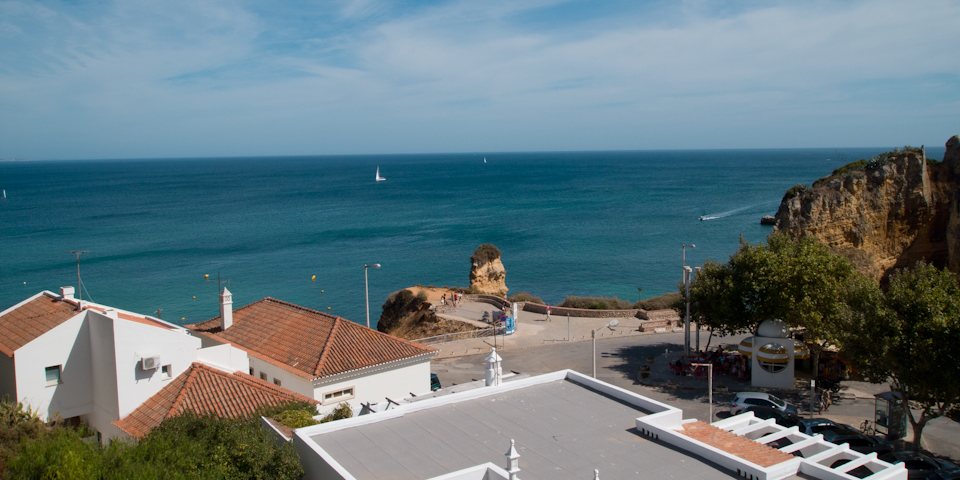 This essay originally appeared in print in The Star Democrat (Easton, Md.) on Sunday, Oct. 2, 2011.
This essay originally appeared in print in The Star Democrat (Easton, Md.) on Sunday, Oct. 2, 2011.SEVILLE, Spain–Tonight on Calle Tetuan, an old man leans against a planter overflowing with tiny purple flowers, playing a melodica. A barely-there breeze urges me to roll my sleeves back down. Finally, cool weather has descended upon Seville. The past three weeks, now just a blur of sweat and tears, have been replaced by a more comfortable clime. If not for the hundreds of Spanish shoppers carrying their bags and conversations all around me, I would think I was somewhere else.
But much more than the weather has changed since I landed in Spain, considering, for a while, I didn’t want to be here.
The minute I got through airport security, I wanted to return to the check-in counter, take back my suitcases and stop my parents’ car before they could get out of the parking lot. The reality of spending four months in Spain hit me there in the terminal, and what had once been excitement turned instantly to misery.
Nothing that happened over the next 24 hours made me feel any better. An upset toddler, from the seat in front of mine, screamed his way across the Atlantic Ocean. When I landed in Brussels, my BlackBerry didn’t work. Because I couldn’t manage any of the airport pay phones, I was panicking about how to let my parents know I was all right. To get access to a computer and to pay for my cab ride later, I exchanged $100, only to get back €56.
By the time my plane touched down in Seville, it was raining, and the taxista, cab driver, who took me to my hotel, charged me much more than the normal rate. (This I discovered later.) That night, even after almost 24 hours of traveling, I couldn’t sleep.
I just wanted to be home.
For the first week, it didn’t matter to me how wonderful my new friends were or how rife with color, history and passion Seville was. Endless plates and bowls of salmon, artichokes and cool gazpacho only half-filled me, to the quiet disappointment of my señora, my host mother.
Now three weeks and a few exams later, I’m settling in. I’m reveling in the opportunity to jog by a 16th-century cathedral, to take weekend trips to the rock-rimmed beaches of Portugal and through the winding streets of Córdoba (not Cordova). The sight of olive groves and orange trees and the more-than-occasional cypress makes me feel I’m supposed to be here at least for a while.
That’s not to say homesickness doesn’t find me anymore. During siesta, when the sounds of the street and my señora’s apartment fade to a murmur, I pine for home, for my parents. I miss friends and professors at my small Virginia university. Sometimes this yearning is so strong that I’d trade a bus ride through Andalucía for the stop-and-go of the Beltway, if only that meant I were in my car and headed for home.
I stay this sadness with cucuruchos, cones of ice cream and sporadic lunches with my new friends. I push myself out of my bedroom in the evening to talk to my señora about whatever she’s reading or watching on TV.
It’s there, in front of the television the other night, that I learned this Spanish idiom: el gato al agua, the cat at water. It’s used to refer to something people don’t want to do or don’t want to talk about.
Just three weeks ago, I was the cat at water, scared for no reason, made miserable by discomfort.
But this cat has since jumped in. I know that as the days get shorter, so does my time left in Spain. While every minute brings me closer to my return to the States this Christmas, I also lose a minute to live life in another language and to come to know a foreign country.
Unlike the cat at water, I’m glad to be here today. I’m excited to visit the ceramic shops in Triana this afternoon, to travel to Cáceres next weekend and to Granada sometime in November. I’ve made this peace thanks to the wise words of a friend: Sometimes, the going away and the doing confirm the being and the doing of everyday life.
Hasta luego.

